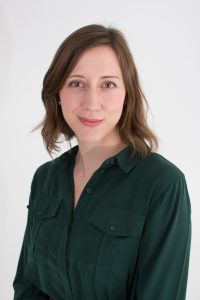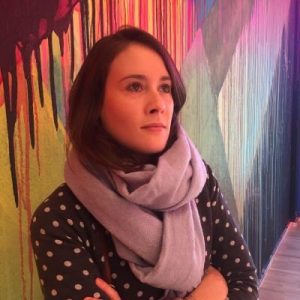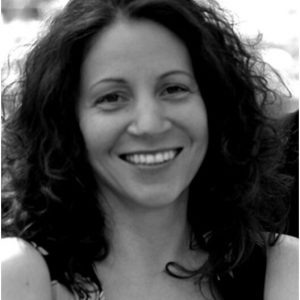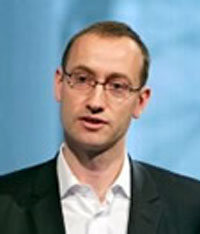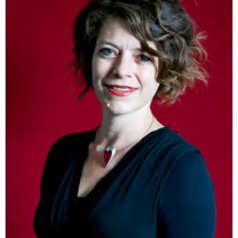We are pleased to announce the sixth edition of the annual
Summer School for Journalists and Media Practitioners
JOURNALISM IN THE DIGITAL AGE: RESPONDING TO PROPAGANDA AND FAKE NEWS
5-9 June 2017 – FLORENCE, ITALY
The Summer School is organised by the Centre for Media Pluralism and Media Freedom (CMPF) at the Robert Schuman Centre for Advanced Studies of the European University Institute (EUI).
The EUI is a renowned international institution, hosting a community of more than 1000 academics and policy-makers from over 60 countries. It is located on picturesque hills above Florence.
Building on its successful experience of previous years, this year’s Summer School will offer the opportunity to around 25 journalists and media practitioners to learn about the latest policy, market and professional trends in the area as well as to share their experiences, ideas and points of view. The Summer School programme is structured around keynote presentations by distinguished experts and follow-up interactive sessions.
Topics include:
- Freedom of Expression, Pluralism and the Changing Media: Legal Perspectives
- Media Economy, Journalism and Pluralism
- Fake News and Media Literacy
- Practice Day: Fact-checking tools, services and initiatives; Social media verification; Data journalism
- Self-regulation and Ethics
Download the programme
PARTICIPANTS:
The Summer School is open to early and mid-career journalists and other stakeholders in the news industry. We aim to have participants from a variety of countries and backgrounds but scholarships will be available only to the nationals or residents from EU Member States, accession and neighboring countries. The selection of participants will be made by the CMPF based on the information provided in the application form.
PRESENTERS:
Academics affiliated to CMPF and renowned experts and journalists. Names of speakers will be added to the webpage on a rolling basis over the coming weeks. You can find the last year’s programme here.

Brigid Laffan
Brigid Laffan is Director and Professor at the Robert Schuman Centre for Advanced Studies, and Director of the Global Governance Programme, European University Institute (EUI), Florence. In August 2013, Professor Laffan left the School of Politics and International Relations (SPIRe) University College Dublin where she was Professor of European Politics. She was Vice-President of UCD and Principal of the College of Human Sciences from 2004 to 2011.
She was the founding director of the Dublin European Institute UCD from 1999 and in March 2004 she was elected as a member of the Royal Irish Academy. She is a member of the Board of the Mary Robinson Foundation for Climate Justice, the Fulbright Commission (until September 2013) and was the 2013 Visiting Scientist for the EXACT Marie Curie Network.
In September 2014 Professor Laffan was awarded the UACES Lifetime Achievement Award. In 2012 she was awarded the THESEUS Award for outstanding research on European Integration. In 2010 she was awarded the Ordre national du Mérite by the President of the French Republic.
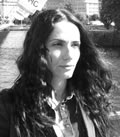
Konstantina Bania
Konstantina Bania, PhD specialises in Competition Law and Media & Telecommunications Law. She is currently the Legal Counsel in charge of competition law and policy at the European Broadcasting Union. She further advises on telecoms regulation, PSM funding, and the acquisition and sale of media rights. Konstantina is also an Extramural Fellow at the Tilburg Law and Economic Centre (Tilec).
Prior to joining the EBU, Konstantina was a Research Associate at the Centre for Media Pluralism and Media Freedom (EUI) and an External Research Collaborator of the Centre for Commercial Law Studies at Queen Mary University, London. Konstantina received her PhD from the European University Institute. In 2016, she won the Concurrences Thesis award, an annual Europe-wide competition that is aimed at selecting the most innovative PhD dissertation in the field of law and economics.
Konstantina has received numerous research grants, prizes and fellowships, which were awarded by the Fulbright Commission, Fundação Getulio Vargas, the European Broadcasting Union, the European University Institute, the Competition Law Scholars Forum, the Greek Scholarships Foundation, and the Institute for European Studies. Over the past years, she has worked on various EU-funded projects, including the Media Pluralism Monitor, MEDIADEM and the Media Profiler. She is a qualified lawyer and has provided legal services to the European Commission (DG MARKT), IT qualifications providers, broadcasters, cloud service providers, and advertising agencies. She has also completed a blue book traineeship at DG Competition (State aids, media & telecommunications).
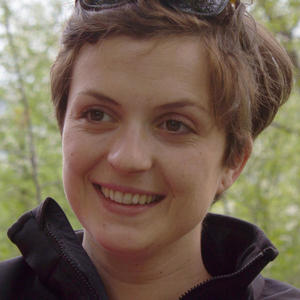
Marzia Bona
Marzia Bona is the editorial coordinator for Osservatorio Balcani Caucaso Transeuropa (OBCT) of the Resource Centre on Media Freedom, a curation platform providing open and systematized access to a wealth of contents on media freedom and pluralism in Europe. The platform has been developed within the project “European Centre for Press and Media Freedom”, and it aims to become a hub for exchange and networking for a range of different actors with interest in media freedom, including journalism students, media practitioners, media experts and policy makers.
Part of the OBCT team since 2013, she previously worked at the European regional master in Human Rights and Democratization in South East Europe, based in Sarajevo. MA in International Relations at the University of Bologna, she specialized in area studies focusing on South-East Europe, human rights and European affairs.
For OBCT, she has been working on the research project “Safety net for European journalists”, conducting field research of working conditions for journalists in Slovenia and Croatia and contributed to other research activities on civil society and regional cooperation in South East Europe.
Catherine Cornet
Catherine Cornet, PhD is currently the Communication expert for the MEDirections Programme at the EUI. She has been working for 15 years in the journalistic field in the Middle East and Europe and is a columnist on the Arab world for the Italian weekly Internazionale. She has completed her PhD in March 2016 at the EHESS in Paris and University of Rome II and teaches ‘History of the Arab Press’ at the University la Sapienza of Rome. She holds a MA in Middle Eastern Studies from the School of Oriental and African Studies, a MA in Political Science (IEP Aix-en-Provence) and a MA in Comparative Literature (University of Aix-en-Provence).
Chris Elliott
From 2010 until March 2016 Chris Elliott served as the readers’ editor at The Guardian having been appointed managing editor in February 2000. He is still working on some projects for the Guardian. Chris has worked as the home affairs correspondent for the Sunday Telegraph, chief reporter for the Sunday Correspondent and assistant news editor for the Times. He also is a board member and trustee of the Ethical Journalism Network.
In 1995, he joined The Guardian’s newsdesk and was part of the team that won the UKPG Team Reporting Award for the Jonathan Aitken investigation. He has also served on the board of the International News Safety Institute (INSI) and the Nomination Committee of the Reuters Founders Share Company until 2015. He is currently chair of Concern Worldwide UK.
His areas of interest are self regulation of the press, media law, diversity and training, especially for journalists working in hostile environments. Chris became a consultant for Impress, the UK’s alternative press regulator, in April 2016. He chaired the accreditation committee of the NCTJ, the United Kingdom’s major journalism training body, between 2010 and 2016.

Christophe Leclercq
Founder of EurActiv and currently EurActiv’s Chairman of the board, ‘ambassador’ and editorialist. He also teaches ‘media & communications’ at Université Libre de Bruxelles, with which he led the project #Media4EU.
Born in 1962, French with an English wife and three children, Christophe Leclercq is also the founder of ‘Fondation EurActiv’, guiding the media network, training journalists and initiating R&D projects for the ‘EU Community’ (e.g., EurActory and Policy Line). In this capacity, he also initiated ‘Media4EU’, together with the Association of European Journalists. Additionally, Christophe Leclercq is member of ‘ L’Appel du 9 mai’ now called ‘Civico Europa’ and signatory of ‘Spinelli Group’-300 European intellectuals and academics, calling for an EU re-foundation. He is one of the ‘media minds’ of EMM’s Future Media Lab, and also a member of the Global Editors Network. He was on several juries, e.g. Euro-Effies (advertising effectiveness), Robert Bosh Fellows (Brussels experience for national journalists), PolitikAwards, and the EurActory Awards. Currently, he is on the board of JA-YE Europe (Junior Achievement Young Enterprise: entrepreneurship in schools) and honorary member of the student association AEGEE-Europe, as part of its founding team in the 80’s that successfully lobbied to pass the exchange programme ERASMUS.
Christophe Leclercq studied political science (‘Sciences Po’ Paris), business administration (HEC Paris, also at NYU & Köln), and international relations (ULB, Brussels). He wrote several books and about 100 articles and interviews on alliances, governance, media policy, EU communication, public affairs, enlargement, Russia and Ukraine, EU policy. Christophe Leclercq speaks French, English and German, plus some Italian and Russian.
Kate Lyons
Kate Lyons is a commissioning editor for the Guardian’s Special Projects desk, which is responsible for running topical news series and special investigations.
She is currently the commissioning editor and lead reporter for the Guardian’s New Arrivals series, a long-term project focusing on the experience of asylum seekers and refugees in Europe, run in collaboration with Der Spiegel in Germany, Le Monde in France and El Pais in Spain.
She joined the Guardian after moving to the UK from her native Australia, where she previously wrote for the Sydney Morning Herald and Daily Mail Australia.
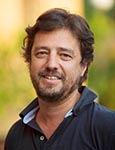
Miguel Poiares Maduro
Miguel Poiares Maduro is Professor at the Robert Schuman Centre of the European University Institute where he was the Founding Director of the Global Governance Programme (from 2010 to 2013).
From 2013 to 2015 we was Minister Deputy to the Prime Minister and Minister for Regional Development in Portugal. Until 2009 he was Advocate General at the European Court of Justice. From May of this year he has been appointed Chairman of the new Governance and Review Committee of FIFA. He was a member of the EU High Level Group on Media Freedom and Pluralism. He has been a regular Visiting Professor at Yale Law School, the College of Europe and Universidades Católica and Nova in Portugal. He has also taught at the London School of Economics, the Centro de Estudios Constitucionales (Madrid) and Chicago Law School. He is a Doctor of Laws by the European University Institute (Florence) and was the first winner of the Rowe and Maw Prize and winner of the Prize Obiettivo Europa (for the best PhD thesis at the EUI). He has been Fulbright Visiting Research Scholar at Harvard Law School. He is Co-Director of the Academy of International Trade Law (Macao). He belongs to the editorial or advisory board of several law journals, including the European Law Journal and the Common Market Law Review and was founding editor of Global Constitutionalism. He co-edited with Joseph Weiler the Special Book Review Issue of the European Law Journal. And with Francis Snyder the Hart Publishers Series Studies in European Law and Integration. He is the author of We the Court – The European Court of Justice and the European Economic Constitution (Oxford, Hart Publishing, 1997).
He has published articles, in several languages, on issues of EU law, constitutional law, human rights law and international economic law. More recently he published A Constituição Plural – Constitutionalismo e União Europeia (Lisboa, Principia, 2006) and The Past and Future of EU Law (co- edited with Loic Azoulai, Oxford, Hart Publishing, 2009). He has also published a non-legal book (Crónicas de um Peixe Fora de Água, Lisboa, Entrelinhas, 2006). He has been honoured by the President of the Portuguese Republic with the Order of Sant’Iago da Espada for literary, scientific and artistic merit. In 2010 he was awarded the Gulbenkian Science Prize.
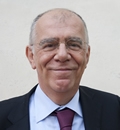
Pier Luigi Parcu
Pier Luigi Parcu is part-time Professor at the European University Institute (EUI) from 2010. Prof, Parcu is currently Director of the ENTraNCE, of the Centre for Media Pluralism and Media Freedom, and of the FSR Communications & Media at the Robert Schuman Centre for Advanced Studies at the EUI. He is also Chairman of a consultancy company specialized in antitrust and regulatory issues of network industries. From 2000 to 2003, he has been CEO of the Independent System Operator running the Italian Electricity Grid (GRTN).
From 1991 to 2000 he was the Director of Investigation at the Italian Competition Authority (AGCM) in charge of several regulated sectors. Previously, he served as Chief Economist at the Italian Security and Exchange Commission (CONSOB) and as Economist at the International Monetary Fund (IMF). He holds a Ph.D. in Economics from the University of California at Los Angeles (UCLA). His research in the area of industrial organization and law and economics focuses on the interaction between regulation and antitrust in shaping firms’ behaviour in network industries. As regards research in the media area,
Prof. Parcu’s interests focus on the effects of ownership concentration and internal governance of the media enterprise on pluralism and freedom of expression. Finally, among the most recent interests of research and publication, Prof. Parcu is looking at the Internet’s effects on traditional business models and its influence on new economic developments such as the sharing economy and smart cities.
Camille Petit
Camille Petit is working as a project assistant at the European Federation of Journalists (EFJ) in Brussels. She studied journalism in France and holds a masters degree in European studies from la Sorbonne Nouvelle.
Prior to joining the EFJ in 2016, she worked for several media outlets, including La Voix du Nord and la Nouvelle République (France), Le Petit Journal (London) or the House of European History (Latvia). At the EFJ, she is responsible for the Media Against Hate project and she is dealing with communication and lobbying activities.
Krisztina Stump
Krisztina Stump is Deputy Head of Unit of the Converging Media and Content Unit, in Directorate General for Communications Networks, Content and Technology of the European Commission.
She holds Master of Laws degrees, with a focus on Media Law and Intellectual Property, from Columbia Law School (2010) and from Humboldt University (2003). She graduated in Law from the ELTE University in Budapest in 2001 and obtained there also a Master’s in Communication and Media Studies in 2002.
She joined the European Commission in 2011. Formerly, from 2005 till 2010, she was working at the Research Department of the Court of Justice of the European Union. Her experience prior to joining the EU Institutions includes work at the legal department of the Hungarian Radio and Television Commission, the legal department of MTM-SBS Television and at the Andrási Law Firm in Budapest.
Damian Tambini
Damian Tambini is Research Director and Associate Professor in the Department of Media and Communications of the LSE, and head of the MSC in Communication Governance. Damian is also an Associate Fellow at the Institute for Public Policy Research and at the Oxford Internet Institute.
He serves on the Editorial Commission for the Open Society Foundation’s Mapping Digital Media Project and the UK Board of Reporters Without Borders.
Between 2002 and 2006 he directed Oxford Universtity’s Programme in Comparative Media Law and Policy. Damian has authored numerous articles and books on media law and policy and political communication..
Amanda Third
Amanda Third, (PhD) Associate Professor is Principal Research Fellow in the Institute for Culture and Society at Western Sydney University, Australia.
Amanda’s research focuses on the socio-cultural dimensions of young people’s technology use, with particular emphases on children’s rights in the digital age, the intergenerational dynamics shaping technology practice, and vulnerable young people’s technological engagements. From 2011-2016, Amanda led a research program in the Young and Well Cooperative Research Centre (youngandwellcrc.org.au).
She is also Lead Investigator on an Australian Research Council Industry Linkage project entitled “Young People, Technology and Wellbeing Research Facility”. Amanda is a founding member of the Australian-based Technology and Wellbeing Cross-Sector Roundtable and the Australian Living Labs Innovation Network; a member of the international Digitally Connected Network; and an Expert Advisor to Global Kids Online.
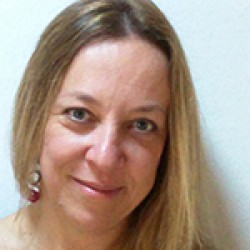
Elisabetta Tola
Elisabetta Tola ia a journalist and science communicator. She lectures in data journalism, science communication and multimedia at the Masters in Science Communication at Sissa, Trieste and other journalism schools.
Co-founder of the science communication agency Formicablu, founder of datajournalism.it, a web lab for data-driven stories and tutorials. and radio presenter of the daily science programme Radio3Scienza on RAI Radio 3 and of the weekly tech&digital innovation programme Pensatech at Radio Città del Capo, Elisabetta is also a freelance contributor for Wired Italy, RaiExpo, L’Espresso and other science&tech media and for the Italian publisher Zanichelli.
Elisabetta is the author of Seedversity.org, a crossmedial project on agrobiodiversity supported by the Innovation and Development Reporting grant. In October 2015 she was awarded a new grant, under the same scheme, for the investigative project SEEDcontrol, focused on the seed market. She is also part of the investigative team behind the project Hearing Voices, funded in 2015 by the JournalismFund.
Since October 2015 she has worked with the Google News Lab as Media Training Specialist for Italy.
FEES AND SCHOLARSHIPS:
Fee: €1000. The fees include: 5 nights’ hotel accommodation, all tuition, all course materials, access to the EUI library, Wi-Fi access at the EUI, social activities, lunches and coffee breaks on lecture days.
We offer twenty (20) scholarships that cover the following: travel expenses (up to 400 EUR), accommodation for 5 nights, tuition fees, all course materials, access to the EUI library, Wi-Fi access at the EUI, social activities, lunches and coffee breaks on lecture days. The scholarships are available for outstanding candidates from EU Member States and neighboring countries by application only. Please note that unsuccessful applicants for these places will not be considered for a fee-paying place at the School. Scholarships are not intended for participants who can be funded by their own institutions.
Please note, CMPF cannot assist the selected participants with the Visa application process or expenses for travel documents.
OUTCOME:
Shared knowledge of common European journalistic professional rights and rules; up-to-date overview of the legal principles governing content online; strategies for the development of new business models in journalism; analysis of the state of play of pluralism and freedom in the digital media environment; interactive session proceedings; networking among participants and among participants and speakers.
A Certificate will be awarded to each participant who has successfully completed the training course.
HOW TO APPLY:
We will consider only applications received through the online application system, and it has to contain your CV (maximum 2 pages) and motivation letter (maximum 1 page). If you wish to be considered for a scholarship you also have to submit a two pages article on if/how social media shape elections in your country.
Deadline extended: 18 April
Selected candidates will be contacted starting from 2 May 2017
The working language of the Summer School is English






